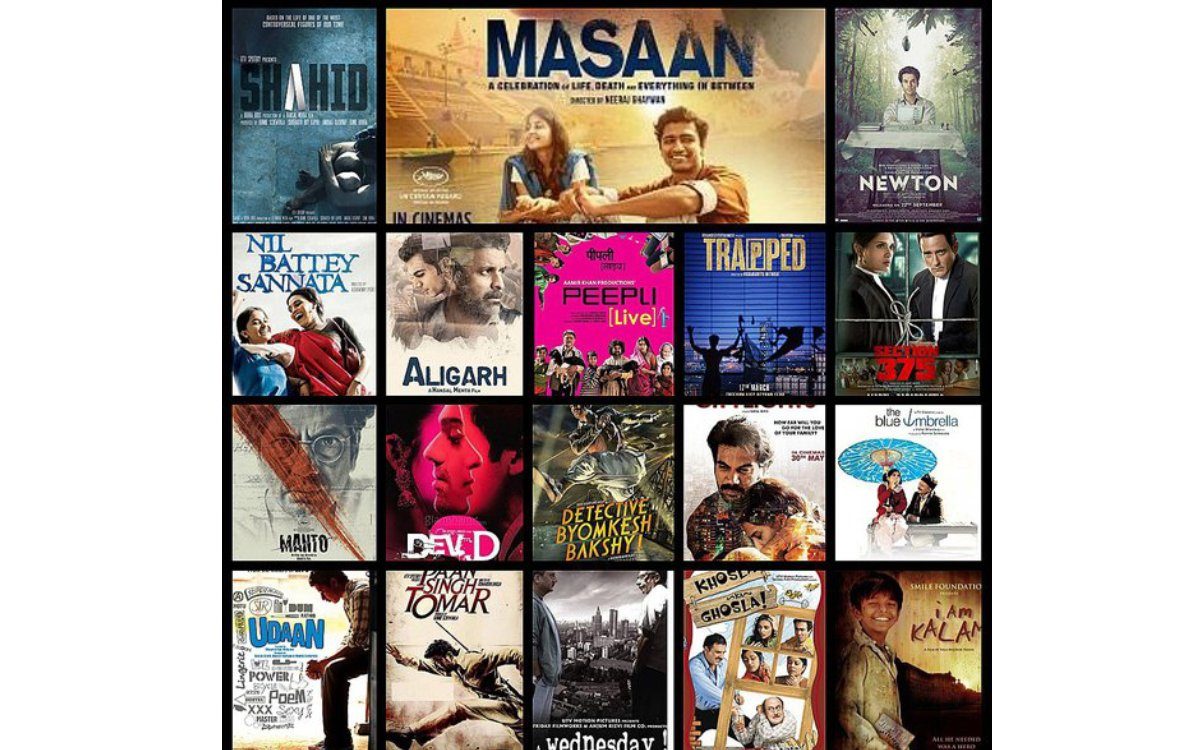The world of Hindi cinema, colloquially known as Bollywood, is a treasure trove of cinematic gems that often go unnoticed. While mainstream blockbusters garner the lion’s share of attention and accolades, there exists a plethora of underrated movies that, despite their brilliance, remain overshadowed. These films, rich in narrative depth and artistic merit, deserve recognition for their unique contributions to Indian cinema.
Contents
The Hidden Masterpieces:
“Masaan” (2015): Directed by Neeraj Ghaywan, this poignant drama delves into the intersecting lives of four individuals grappling with issues of caste, loss, and forbidden love in the ancient city of Varanasi. “Masaan” is a testament to the power of storytelling, with its stark realism and profound emotional resonance. The film’s exploration of societal constraints and personal redemption is both heart-wrenching and uplifting.
“Ship of Theseus” (2012): Anand Gandhi’s philosophical exploration of identity and continuity is a film that challenges conventional narrative forms. “Ship of Theseus” intertwines three stories, each addressing existential questions through the lens of organ transplantation. The film’s meditative pace and intellectual rigor make it a standout in the realm of Indian independent cinema.
“Udaan” (2010): Vikramaditya Motwane’s debut film is a coming-of-age story set in the industrial town of Jamshedpur. “Udaan” follows the journey of a young boy who aspires to be a writer but faces the oppressive demands of his authoritarian father. The film’s lyrical storytelling and evocative performances capture the struggle for self-expression and freedom.
The Forgotten Narratives:
“Raincoat” (2004): Directed by Rituparno Ghosh, “Raincoat” is a melancholic tale of love and longing. Starring Ajay Devgn and Aishwarya Rai, the film unfolds over a single day as two former lovers reunite after years of separation. The minimalist approach and intimate setting highlight the emotional intricacies of the characters, making it a profound cinematic experience.
“Paan Singh Tomar” (2012): This biographical drama directed by Tigmanshu Dhulia tells the story of an athlete-turned-dacoit. “Paan Singh Tomar” is a gripping narrative that showcases the life of its titular character, played masterfully by Irrfan Khan. The film’s exploration of systemic injustice and personal rebellion resonates deeply, making it a compelling watch.
The Overlooked Innovations:
“Black Friday” (2004): Anurag Kashyap’s gritty and unflinching portrayal of the 1993 Bombay bombings is a film that faced significant hurdles before its release. “Black Friday” combines meticulous research with a narrative style that blurs the lines between documentary and fiction. Its stark realism and complex character portrayals set a benchmark for crime dramas in Indian cinema.
“The Lunchbox” (2013): Directed by Ritesh Batra, this film is a delightful yet poignant exploration of human connection. “The Lunchbox” revolves around an unusual epistolary relationship between a lonely housewife and a middle-aged office worker. The film’s nuanced depiction of loneliness and hope, combined with stellar performances, makes it a modern classic.
The Artistic Triumphs:
“Aankhon Dekhi” (2013): Rajat Kapoor’s philosophical drama about an elderly man who decides to believe only what he sees with his own eyes is a cinematic gem. “Aankhon Dekhi” explores themes of perception, reality, and the quest for truth. The film’s quirky narrative and profound insights into human nature make it a thought-provoking watch.
“Court” (2014): Chaitanya Tamhane’s courtroom drama is a scathing critique of India’s judicial system. “Court” follows the trial of an aging folk singer accused of inciting a man’s suicide. The film’s stark realism and meticulous attention to procedural detail highlight the absurdities and injustices within the legal system.
The Cultural Commentaries:
“Dhobi Ghat” (2010): Kiran Rao’s directorial debut is an intimate portrayal of Mumbai’s diverse social fabric. “Dhobi Ghat” weaves together the lives of four characters from different strata of society. The film’s observational style and its exploration of themes such as loneliness, aspiration, and the city’s relentless pace provide a unique cinematic experience.
“Titli” (2014): Kanu Behl’s debut film is a dark, unflinching look at a dysfunctional family in Delhi. “Titli” follows the youngest member of a car-jacking gang as he dreams of escaping his grim reality. The film’s raw portrayal of violence and its nuanced character studies offer a powerful commentary on societal decay.
The Uncelebrated Comedies:
“Khosla Ka Ghosla!” (2006): Dibakar Banerjee’s satirical comedy about a middle-class family’s battle to reclaim their land from a greedy developer is a delightful watch. “Khosla Ka Ghosla!” combines humor with social commentary, making it a timeless film that resonates with audiences.
“Chupke Chupke” (1975): While not as obscure as others, this Hrishikesh Mukherjee classic often gets overshadowed by the director’s more famous works. “Chupke Chupke” is a hilarious comedy of errors, featuring a stellar ensemble cast and a script that is as witty as it is endearing.
Conclusion:
The realm of underrated Hindi films is vast and varied, offering a rich tapestry of narratives that deserve greater recognition. These films, with their innovative storytelling, profound themes, and artistic excellence, exemplify the true spirit of cinema. They challenge conventions, provoke thought, and provide glimpses into the myriad facets of human experience. As we celebrate the mainstream successes, it is equally important to acknowledge and appreciate these unsung heroes of Indian cinema, for they enrich the cultural landscape and leave an indelible mark on the hearts and minds of discerning viewers.






